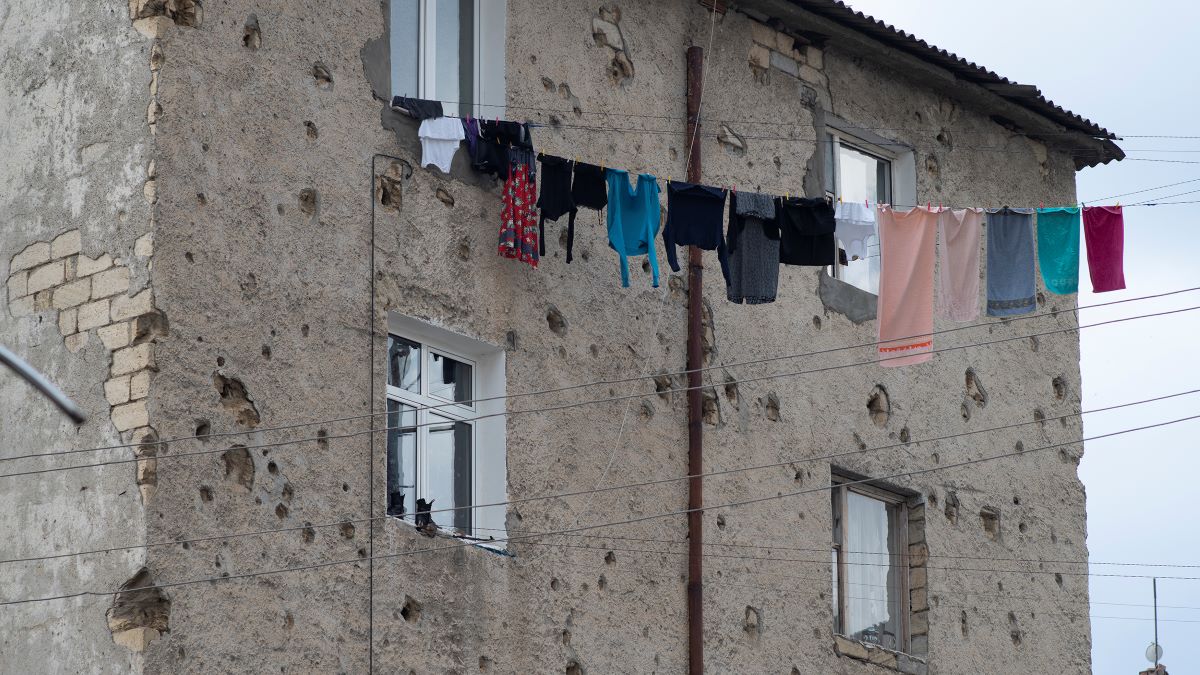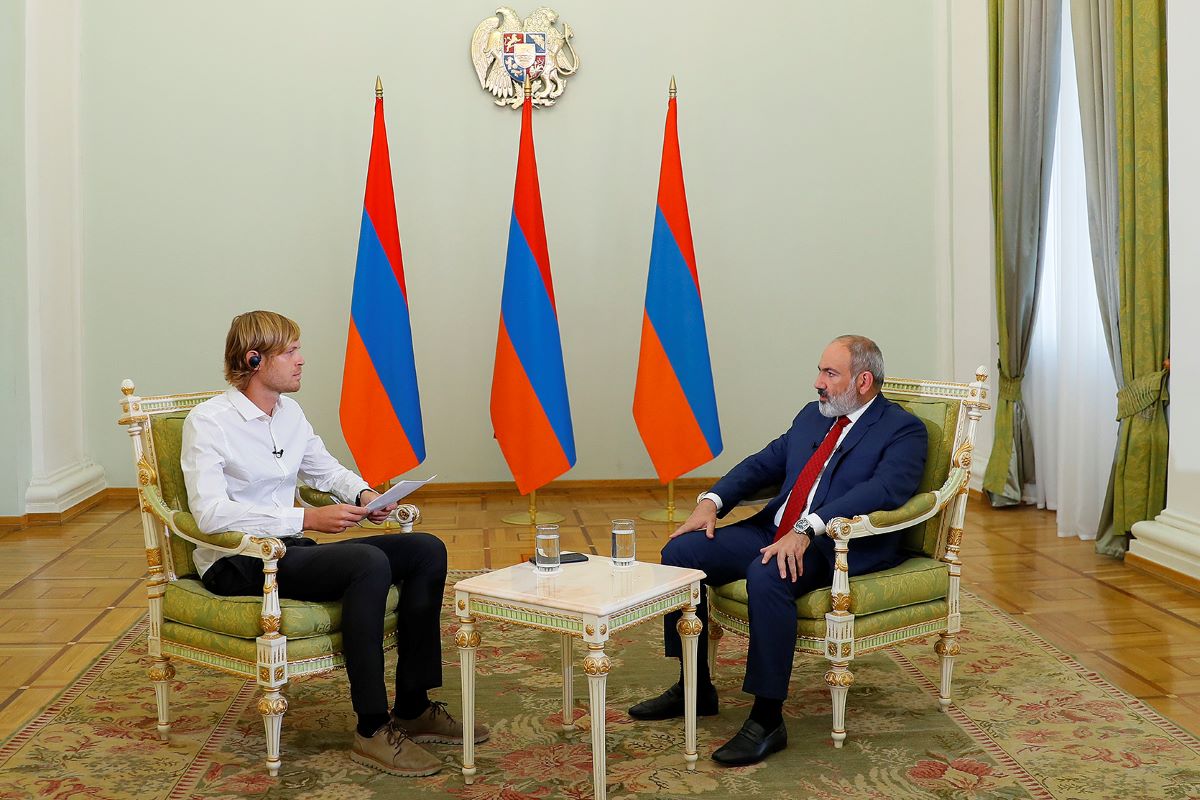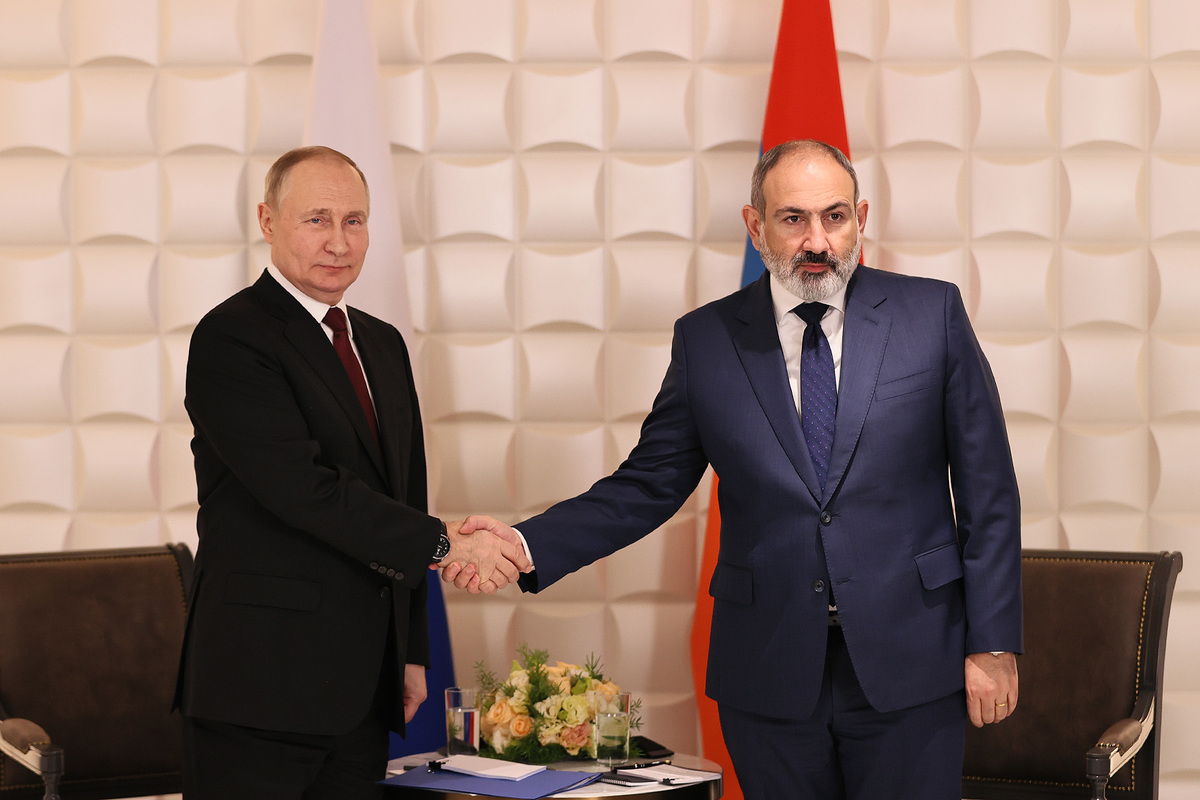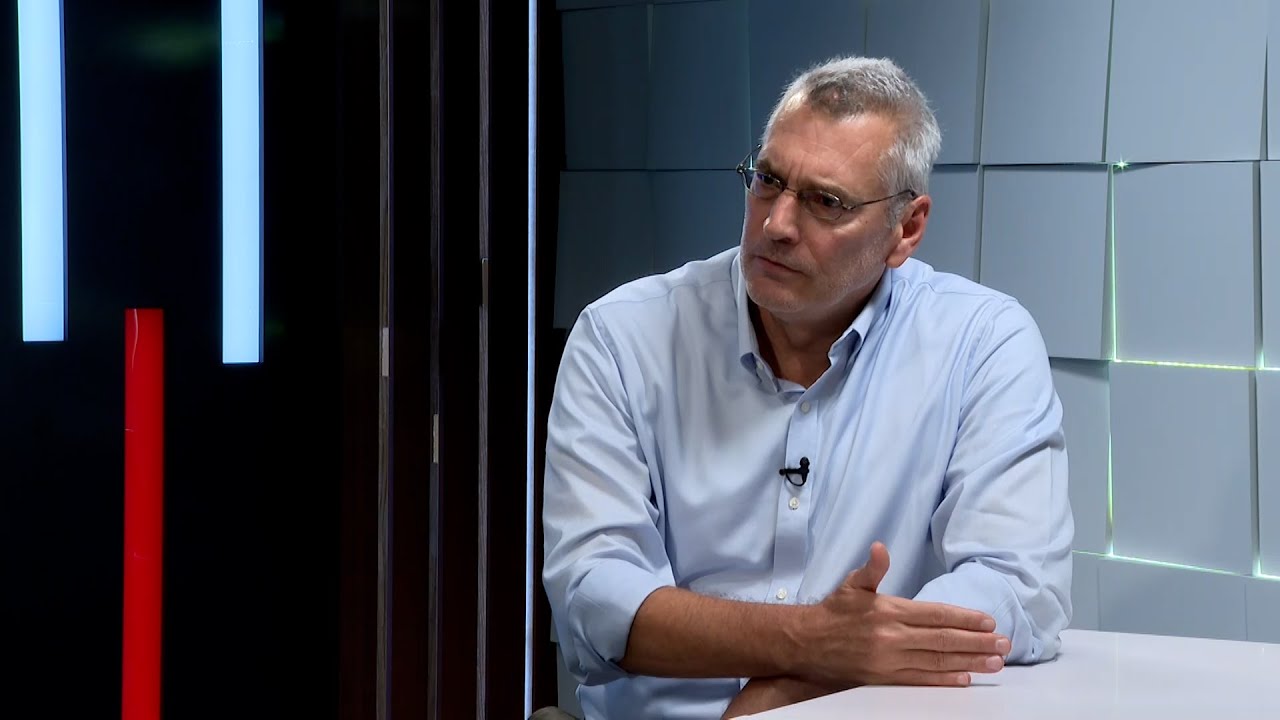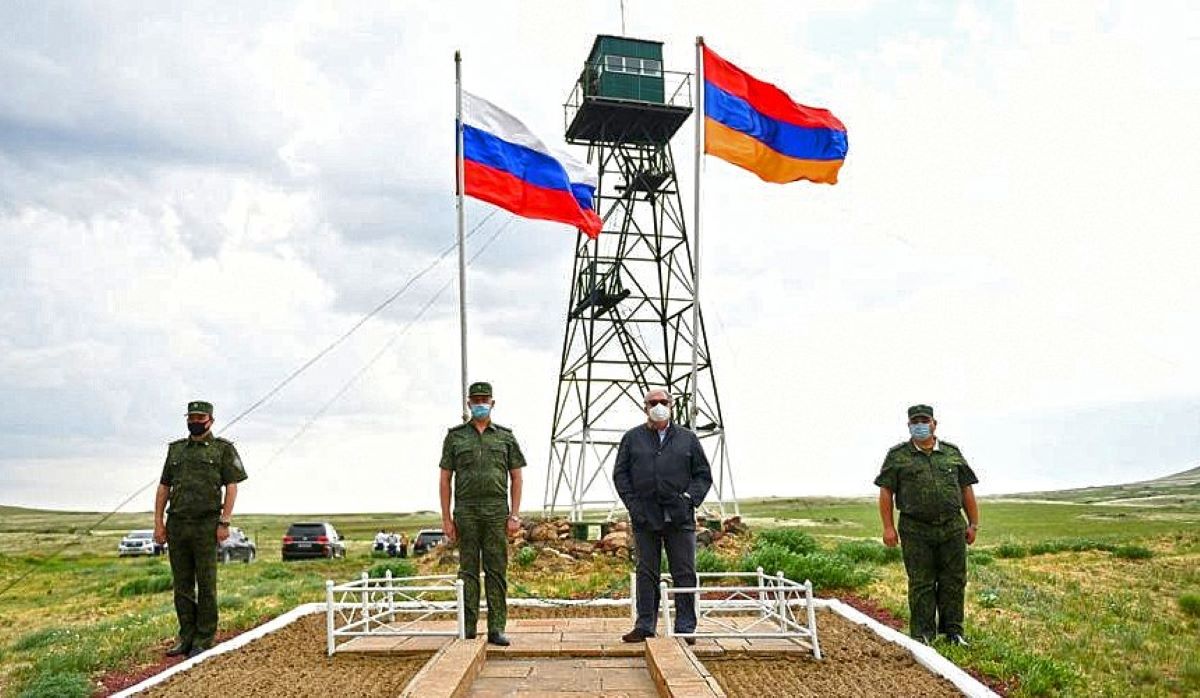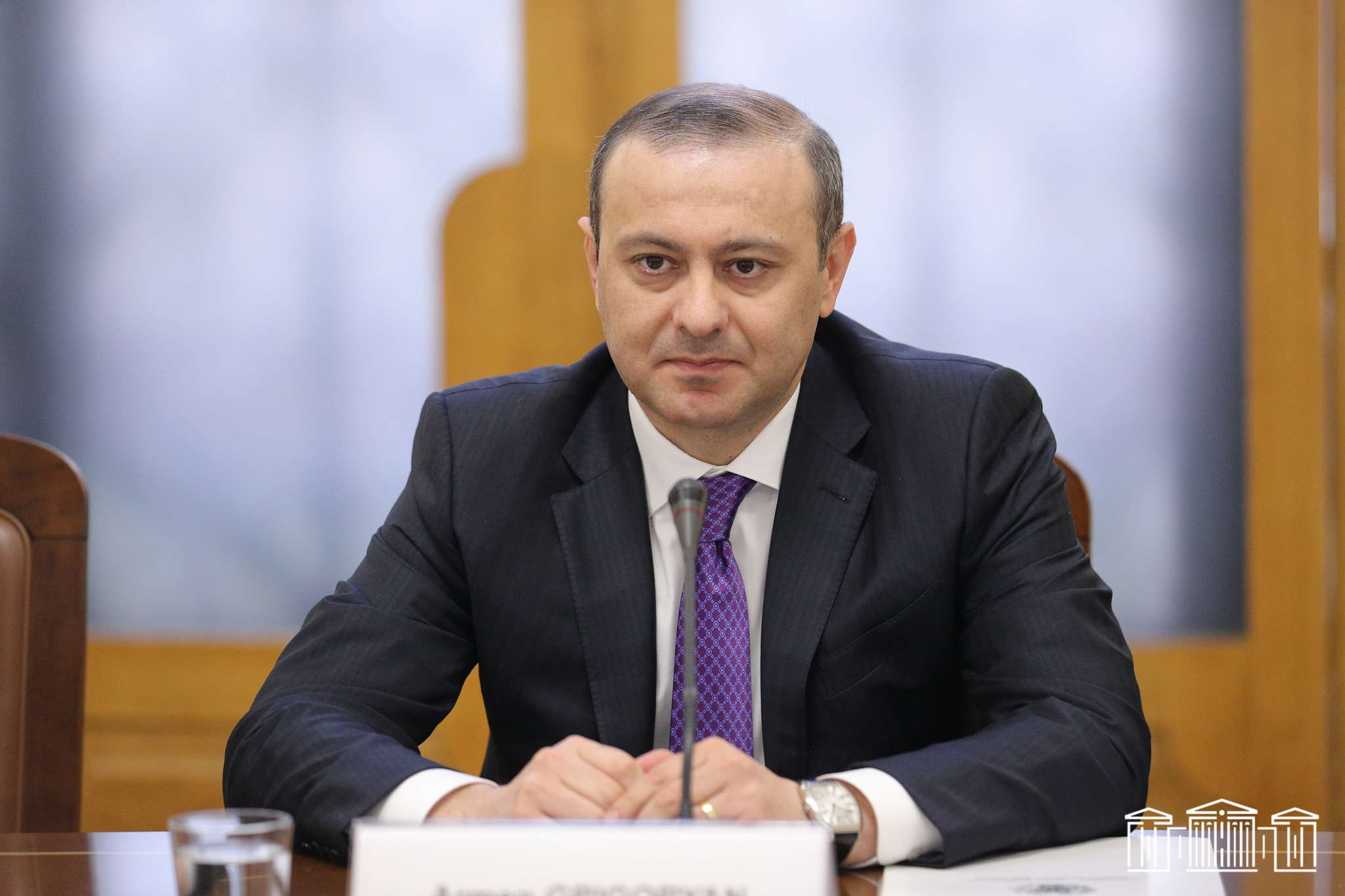"Neutrality of mediators encourages the party that uses force" - Pashinyan
Pashinyan interview with POLITICO Europe publication
“The model according to which we will have problems with our neighbors, we will invite others to protect us, no matter what “others” we are talking about, is a vulnerable model in the sense that these others at some point for objective and subjective reasons […] will not be able to provide assistance. Hence our strategy is to try to defuse this situation as much as possible or to reduce the level of dependence on the need for external assistance as much as possible,” the Armenian Prime Minister said in an interview with POLITICO Europe.
Nikol Pashinyan also talked about the fact that there is “still no atmosphere of trust” in the negotiation process with Azerbaijan, and if it had been achieved, “many issues would not be in the state they are in today.”
Asked about the effectiveness of mediation efforts, he gave an unexpected answer:
“In the negotiation process, mediators are usually told to be neutral. My response to this situation is that I say that when one side uses force or threat of force and the other side is vulnerable in terms of security, neutrality encourages the side that uses force or threat of force. So neutrality in this situation, literally, is not so much neutrality, but rather it encourages the party that uses force or threat of force. In this sense, the mediation of those who act within this logic is ineffective.”
Pashinyan also assessed the role and effectiveness of Russian peacekeepers in Karabakh.
- EU mission monitoring Armenia’s borders with Azerbaijan opens fifth office
- 1000 packages for 120 thousand people in blockade: Russia’s aid to unrecognized NK
- Armenian-American military exercises: Russia’s reaction and response from Armenia
How likely is a new conflict?
“Because Azerbaijan has started the accumulation of forces along the border of the Republic of Armenia, the Republic of Armenia shall also take certain measures in order to defend itself. But I think that the EU civilian monitoring mission in the Republic of Armenia, which is conducting monitoring mission along the border, they can record that the Republic of Armenia has no intention for escalation, and it’s Azerbaijan that has started to bring its central forces towards the border with Armenia and also the entire line of contact with Nagorno Karabakh.
In such a situation, unfortunately, it is not possible exclude the scenario of escalation, and the solution is that the forces that have been mobilized should be taken back to their bases. Armenia is ready to do it.”
What does it mean to recognize Nagorno-Karabakh as part of Azerbaijan?
“Our agreement with Azerbaijan is that Armenia and Azerbaijan mutually recognize each other’s territorial integrity: 29.800 km² and 86.600 km². After this agreement in a press conference in Yerevan I was asked by a journalist if the 86.600 km² of Azerbaijan includes Nagorno Karabakh, I answered yes, it includes also Nagorno Karabakh.
But I also want to say that this does not mean at all that we give Azerbaijan the mandate to carry out ethnic cleansing or genocide against the people of Nagorno Karabakh.
This is the reason that part of this agreement is establishing mechanisms to address the rights and security of Armenians of Nagorno Karabakh, and especially to build a reliable and meaningful Baku-Stepanakert dialogue.”
Is the withdrawal of Armenians from Nagorno-Karabakh possible?
“Talking about exiting Nagorno Karabakh means agreeing with what I said: ethnic cleansing or forced removal of the Armenians of Nagorno Karabakh, because these people are living in their homes.
When we are speaking about ethnic cleansing, the tool for that does not need to be physical extermination of people. Any genocide has two parts: one part is the massacre, the other part is forced exile.
I have to say that there are some such talks, but there is no such agenda. Moreover, the representatives of the international community are very clear, they are saying that the Armenians of Nagorno Karabakh should be able to stay in their homes in Nagorno Karabakh without fear or persecution, they should have the opportunity to live in dignity, security and welfare.”
Armenia builds bridges with the West and distances itself from Russia?
“We do not need to build bridges, because these bridges have always been there, starting with that we have launched a strategic dialogue with the United States. […]
When it comes to our relations with Russia and the CSTO, here we are fully transparent. What are the problems, what are the issues there? We have spoken about this and will continue to speak both publicly and at the working level. This conversation, of course, is contingent to the state interest of the Republic of Armenia. We are guided by the state interests of Armenia. Therefore, I do not want and it cannot be so that Armenia is viewed in the role of a proxy. Indeed, the Republic of Armenia has very serious security challenges, but we see the addressing of the security challenges through strengthening our sovereignty, our independence. And as in the past, today and also in the future we will do everything to ensure our sovereignty, our independence, our security.
But conceptually, I want to share an idea with you and your audience: in general, when it comes to geopolitical centers, our relations with them are very important and decisive. I reiterate, we have never declined and we will never decline any agenda of establishing relations with any geopolitical center based on our state interests.
But on the other hand, I and my political team are in harmony in this regard, and I think that our society is more and more saying the following: if we want to have a lasting, eternal statehood, first of all we need to take very serious steps to settle our relations with our neighbors.
[…]Therefore our strategy should be to try to maximum decrease this dependence on external help.But this is a theory, the implementation of which particularly in our region is extremely difficult. We have social, psychological, historical, geopolitical issues in our environment, in our region. By the way, our region is a very complex region, it’s one of the most complicated regions.”
Is Armenia receiving the support that is expected from the EU and the U.S.?
“Support and assistance is never to much, especially for countries like Armenia. But on the other hand, I do not want and cannot act ungrateful. Because I consider, for example, the deployment of the civilian mission by the EU along the Armenian-Azerbaijani border quite a serious support, for which I constantly thank our partners. The EU and the United States support us also in addressing the democratic reform agenda.
But again, I cannot say that the support and help we are receiving are sufficient to serve our tasks and agendas.
But on the other hand, we are actively working with all our partners to make our positions more clear for them and get more support as a result.”
Has Russia failed as a security guarantor?
“It is obvious that after November 9, 2020, the security situation has sharply changed in Nagorno Karabakh: violations of the line of contact, invasions into the territory of Nagorno Karabakh. We have had a case when a person doing agricultural work was killed by an Azerbaijani sniper in the presence of a Russian peacekeeper. There are obstacles for agricultural work, and finally the blockade of the Lachin Corridor, and the humanitarian crisis in Nagorno Karabakh.
All of these were supposed to be in the sphere of responsibility of the Russian peacekeepers under the trilateral declaration of November 9, 2020.
And in this regard, as far as these issues exist, yes, the Russian peacekeepers have failed their mission. But on the other hand, I cannot say that if the Russian peacekeepers had not been in Nagorno Karabakh, the situation in Nagorno Karabakh now would have been better.
I want to be clear on this nuance that I want us to understand well and very correctly, I think both of the approaches are correct.”
Is the road to democracy and peace irreversible for Armenia?
“I think in general the question whether democracy is able to ensure security is hanging in the skies, in the political skies of Armenia. A lot of things depend on the answer to this question.
I really hope and I am convinced that we should do everything to ensure a positive answer to this question and this is one of the most important components of the peace agenda.”
Follow us – Twitter | Facebook | Instagram
Pashinyan interview with POLITICO Europe publication











